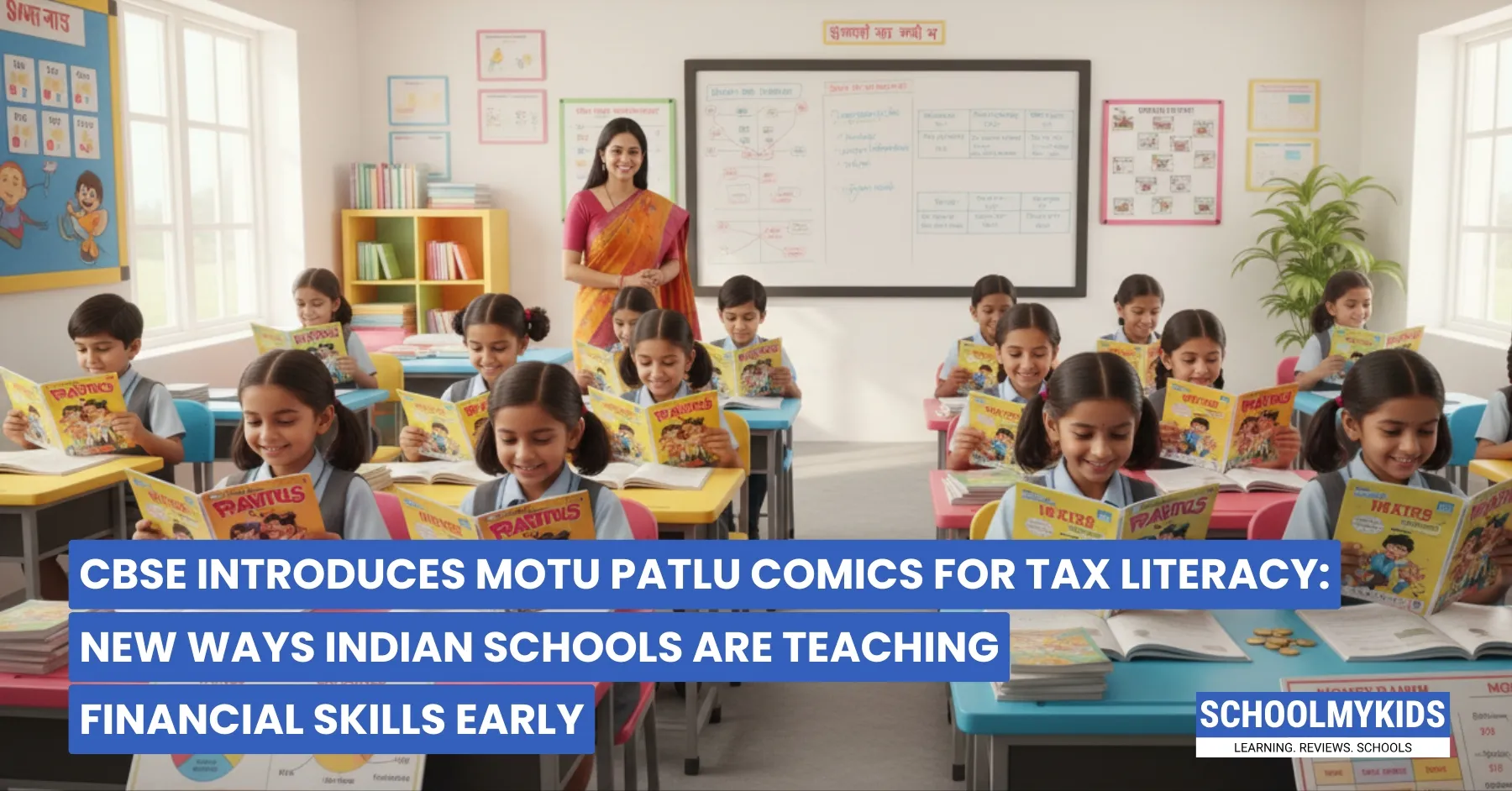Remember how we all loved reading comics as kids? Now imagine learning about taxes through your favorite cartoon characters. That's exactly what's happening in CBSE schools across India.
The Income Tax Department has launched a set of eight comic books featuring Motu Patlu, the beloved duo that millions of Indian children watch on TV. These aren't your regular comics, though. They're designed to teach students about taxes and how they help build our country.
What's This All About?
Under the Azadi Ka Amrit Mahotsav initiative, the Directorate of Income Tax has created these comic books specifically for school children. The best part? They're available in multiple languages, so students from different parts of India can read them in their preferred language. You can find these comics on the Income Tax Department's official website.
CBSE has asked all its affiliated schools to share these resources with students, teachers, parents, and everyone involved in education. Schools can use content from these comics in their awareness programs too.
Why Motu Patlu?
Taxes sound boring to most adults, let alone children. But when you have Motu and Patlu explaining things in their funny, relatable way, suddenly it becomes interesting. These characters are already part of children's daily entertainment, so using them to teach serious topics just makes sense.
Kids trust these characters. They've grown up watching their adventures. So when Motu and Patlu talk about income tax, children are more likely to pay attention and remember what they learn.
What Does This Mean for Students?
This initiative introduces financial awareness at an age when habits are still forming. Most of us only learned about taxes when we got our first job. By then, we had to figure everything out quickly, often making mistakes along the way.
These comics change that. Students will now understand basic concepts early:
- What are taxes, and why do we pay them
- How tax money helps build schools, hospitals, and roads
- Why paying taxes is every citizen's responsibility
- How taxes contribute to our country's development
When children learn these concepts through stories and illustrations, they don't just memorize facts. They understand the 'why' behind taxation. This creates informed citizens who see taxes not as a burden but as a contribution to society.
How This Helps the Education System
For years, we've talked about making education more practical and relevant to real life. Financial literacy has always been missing from our school curriculum. Yes, students learn complex mathematical formulas, but many graduate without understanding basic financial concepts.
This initiative fills that gap in a creative way. Teachers don't need to create special lessons or use complicated textbooks. The comics do the heavy lifting by presenting information in a format students already enjoy.
Parents benefit too. They can read these comics with their children at home, starting conversations about money, responsibility, and citizenship. It brings financial discussions into households in an accessible way.
The Bigger Picture
Think about what happens when an entire generation grows up understanding taxes from childhood. We'd have more responsible citizens who see tax compliance as normal, not something to avoid. We'd have young adults who enter the workforce already knowing their financial responsibilities.
This is about building a culture of awareness and informed citizenship. When children understand that their parents' tax money builds the playground they use or the road they travel on, they develop respect for public resources and civic duty.
Conclusion
The comics are available right now on the Income Tax Department's website. Schools are being encouraged to include them in classroom activities. If you're a parent, ask your child's school about these resources. If you're a teacher, consider using these comics in your classes.
This might seem like a small step, but small steps often lead to big changes. Teaching children about taxes through Motu Patlu comics today might just create a more financially aware India tomorrow.








Be the first one to comment on this story.